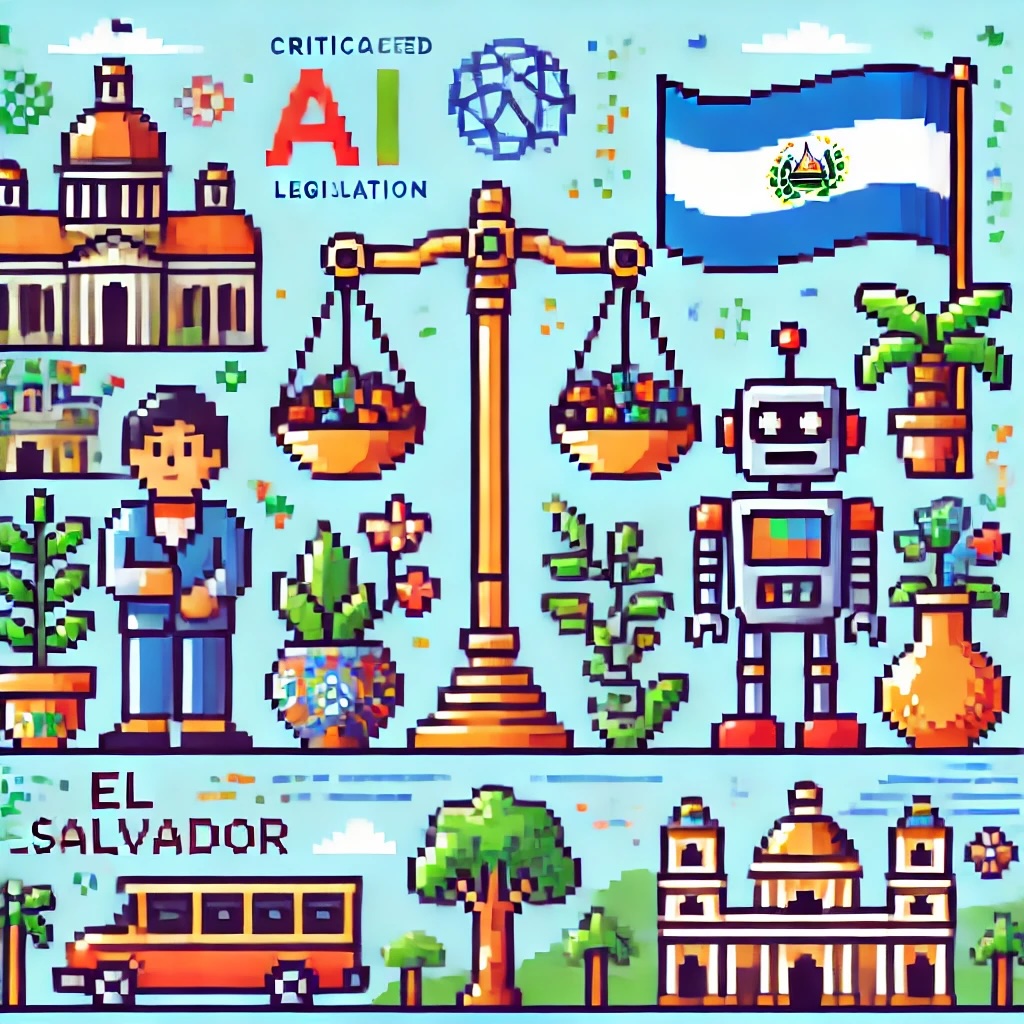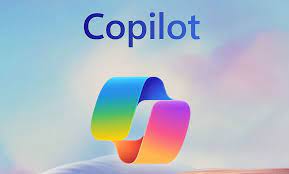
by Joche Ojeda | Jul 6, 2024 | Uncategorized
AI Integration and Future Plans
El Salvador has embarked on a remarkable journey of technological transformation under the leadership of President Nayib Bukele. Building on the momentum from its pioneering adoption of Bitcoin as legal tender, the nation is now setting its sights on integrating Artificial Intelligence (AI) into various sectors to foster innovation and growth. This article explores President Bukele’s vision for AI, the potential benefits and challenges, and the critical need for establishing robust AI legislation.
Government Vision for AI
President Bukele envisions a future where AI plays a central role in El Salvador’s development. In recent developments, he appointed Brian Roemmele, a renowned expert in voice technology and AI, as an AI advisor. Roemmele’s appointment highlights the government’s commitment to integrating AI to drive economic growth and educational opportunities, positioning El Salvador as a leader in the digital age[7][8][9].
Economic Growth: By fostering an environment conducive to AI innovation, El Salvador aims to attract tech companies and startups, thereby boosting economic growth and creating high-tech job opportunities.
Smart Governance: The integration of AI in government operations promises to enhance efficiency, transparency, and responsiveness, making public administration more effective and citizen-centric[28][30].
Global Competitiveness: Bukele’s vision includes positioning El Salvador as a leader in AI within Latin America, much like its pioneering role with Bitcoin. This involves not only adopting AI technologies but also setting standards that other countries can follow.
Potential Benefits and Challenges
The potential benefits of AI integration are immense:
Economic Benefits: AI can drive significant economic growth by improving productivity, fostering innovation, and creating new job sectors[28][30].
Social Benefits: AI can enhance the quality of life by improving healthcare, education, and public services, leading to a more inclusive and equitable society[27][29].
However, the challenges cannot be overlooked:
Ethical Concerns: Ensuring that AI systems are fair, transparent, and free from bias is crucial to prevent societal harm.
Data Privacy: Protecting the personal data of citizens is essential to maintain trust and prevent misuse.
Workforce Displacement: The transition to an AI-driven economy must be managed carefully to support workers displaced by automation through reskilling and education initiatives.
The Need for AI Legislation
To harness the full potential of AI while addressing its challenges, it is imperative to establish a comprehensive AI legal framework. This framework should cover several key areas:
1. Ethical Standards
- Transparency: AI developers must disclose methodologies and data sources to ensure clarity and trust.
- Accountability: Clear accountability mechanisms for AI decisions, especially in critical sectors like healthcare and finance.
- Fairness: Measures to prevent bias and ensure equitable treatment for all users of AI systems.
2. Data Protection
- Privacy Laws: Strengthened data privacy laws to safeguard citizens’ information.
- Consent: Ensuring individuals have control over their data, including the ability to opt-out of AI data processing.
3. Innovation Incentives
- Research Grants: Funding for AI research and development projects.
- Tax Breaks: Tax incentives for companies investing in AI technologies and infrastructure.
4. Workforce Transition
- Reskilling Programs: Programs to help workers displaced by AI acquire new skills and transition to new job opportunities in the AI sector.
- Education Initiatives: Integrating AI and digital literacy into the national education curriculum.
5. International Cooperation
- Standards Collaboration: Working with international bodies to adopt global AI standards and best practices.
- Regional Partnerships: Fostering regional cooperation in AI research and development.
Conclusion
El Salvador’s journey towards technological transformation continues with the integration of AI. By setting the rules for AI through robust legislation, El Salvador can ensure that it remains at the forefront of innovation in Latin America. The proposed AI legal framework not only addresses the ethical and practical challenges of AI but also positions the country as a leader in the digital future. As El Salvador charts this new course, the commitment to innovation and responsible governance will be key to its success.
This article outlines the government’s vision for AI in El Salvador, the potential benefits and challenges, and the critical need for AI legislation. It aims to inform and engage readers, encouraging them to support and contribute to the country’s digital future.
Related Articles
El Salvador: Digital Transformation Initiatives
El Salvador: The Implementation of Bitcoin as Legal Tender
El Salvador’s Technological Revolution

by Joche Ojeda | Jul 5, 2024 | El Salvador, Uncategorized
Partnerships with Tech Giants
El Salvador has embarked on an ambitious journey of digital transformation, significantly bolstered by strategic partnerships with leading technology companies. These collaborations have been pivotal in advancing the country’s technological landscape across various sectors.
One notable partnership is with Google, focusing on enhancing healthcare, education, and digital government services. Google’s involvement includes the deployment of cloud services to streamline government operations and the integration of AI tools to improve healthcare delivery. Through these initiatives, El Salvador aims to enhance the efficiency and accessibility of public services, ensuring that technology benefits all citizens.
In the education sector, partnerships with tech giants are transforming learning environments. Google Classroom and other digital platforms are being integrated into schools, enabling remote learning and enhancing the quality of education. These tools not only facilitate learning during crises like the COVID-19 pandemic but also prepare students for a digital future.
Development of Digital Infrastructure
Central to El Salvador’s digital transformation is the robust development of digital infrastructure. The government has made significant investments to ensure widespread internet access, recognizing it as a cornerstone for digital inclusion. Efforts include expanding broadband coverage to rural areas and implementing 5G technology in urban centers.
Digital payment systems have also seen substantial growth. The introduction of the Chivo Wallet, a government-backed digital wallet, marked a significant step in promoting cashless transactions. This initiative aligns with the broader goal of fostering a digital economy and reducing the reliance on traditional banking systems. Moreover, the Chivo Wallet’s integration with Bitcoin and other cryptocurrencies opens new avenues for financial inclusion and innovation.
E-government platforms are another critical component of this transformation. The government has launched various online portals to streamline public services, from tax filing to business registrations. These platforms not only enhance efficiency but also reduce bureaucratic hurdles, making it easier for citizens and businesses to interact with the government.
Efforts to Improve Digital Literacy
Recognizing that technological advancements are only as effective as the population’s ability to use them, El Salvador has prioritized digital literacy. The government, in collaboration with educational institutions and private sector partners, has launched comprehensive programs aimed at improving digital skills across the population.
For the general public, initiatives include community training programs and digital literacy campaigns. These efforts focus on teaching basic computer skills, internet navigation, and the safe use of digital tools. By equipping citizens with these skills, the government aims to ensure that everyone can participate in the digital economy and access online services.
In the education sector, digital literacy is being integrated into the national curriculum. Schools are now equipped with modern technology, and teachers receive training on digital teaching methods. This approach not only prepares students for future job markets but also fosters a culture of innovation and technological proficiency from a young age.
Government employees are also a focus of digital literacy efforts. Specialized training programs have been developed to enhance the digital skills of public sector workers. These programs aim to improve the efficiency of government operations and ensure that public servants can effectively use new technologies in their daily tasks.
Conclusion
El Salvador’s digital transformation under President Nayib Bukele is a multifaceted effort encompassing strategic partnerships, infrastructure development, and comprehensive digital literacy programs. By working with tech giants like Google, investing in digital infrastructure, and prioritizing digital education, the country is laying a strong foundation for a technologically advanced future. These initiatives not only improve the quality of life for Salvadorans but also position the country as a leader in digital innovation within Latin America. As El Salvador continues to embrace digital transformation, it serves as a compelling case study for other nations seeking to navigate the complexities of the digital age.
Related Articles
El Salvador: The Implementation of Bitcoin as Legal Tender
El Salvador’s Technological Revolution

by Joche Ojeda | Jul 4, 2024 | Bitcoin, El Salvador
Background
Before delving into the specifics of Bitcoin’s adoption, it’s crucial to understand the economic landscape of El Salvador. Historically, the country has faced significant economic challenges, including high poverty rates, limited access to financial services, and a heavy reliance on remittances, which account for about 20% of its GDP. Since 2001, El Salvador has used the US dollar as its official currency, which has provided stability but also limited monetary policy options for the government.
Bitcoin Law
On June 9, 2021, El Salvador made headlines worldwide by becoming the first country to adopt Bitcoin as legal tender. The Bitcoin Law, proposed by President Nayib Bukele and swiftly passed by the Legislative Assembly, mandates that Bitcoin must be accepted as a form of payment by all businesses and allows it to be used for all debts, public or private. The law’s key provisions include:
- Mandatory Acceptance: All economic agents must accept Bitcoin as payment when offered by the buyer.
- Tax Contributions: Tax contributions can be paid in Bitcoin.
- Pricing: Prices can be expressed in Bitcoin.
- Exchanges: Exchanges between Bitcoin and the US dollar will be exempt from capital gains tax.
- Government Support: The government will promote the necessary training and mechanisms so that the population can access Bitcoin transactions.
The initial public response was mixed. While some saw it as a groundbreaking move to modernize the economy, others were skeptical about the volatility of Bitcoin and its potential impacts on everyday transactions.
Implementation
The implementation of Bitcoin involved several key steps:
- Chivo Wallet: The government developed the Chivo Wallet, a digital wallet that allows users to store and transact in Bitcoin and US dollars. To incentivize adoption, each user who signed up received $30 worth of Bitcoin.
- Bitcoin ATMs: A network of Bitcoin ATMs was established across the country to facilitate the exchange between Bitcoin and US dollars.
- Government Investments: The Salvadoran government made several Bitcoin purchases, intending to stabilize the market and show confidence in the new system.
Despite initial technical glitches and skepticism, the government continued to promote Bitcoin adoption through educational campaigns and infrastructure development.
Impact
Economic Impact
- Financial Inclusion: Bitcoin has provided an opportunity for financial inclusion, particularly for the unbanked population. With around 70% of Salvadorans lacking access to traditional banking services, Bitcoin offers an alternative means of participating in the economy.
- Remittances: The use of Bitcoin for remittances has the potential to reduce transaction fees and speed up transfer times, benefiting many Salvadoran families who rely on money sent from abroad.
- Investment and Tourism: The Bitcoin initiative has attracted international attention, potentially boosting tourism and foreign investment. The country has seen a surge in crypto-related tourism, with enthusiasts visiting to experience a Bitcoin-driven economy firsthand.
Social Impact
- Education and Awareness: The push for Bitcoin has necessitated widespread educational efforts to ensure that the population understands how to use and benefit from digital currency. This has sparked broader discussions about financial literacy and digital technologies.
- Public Sentiment: Public opinion remains divided. While some embrace the innovation, others fear the volatility of Bitcoin and the implications for price stability and everyday transactions.
Conclusion
El Salvador’s bold move to adopt Bitcoin as legal tender marks a significant milestone in its technological transformation. While the long-term effects are still unfolding, this initiative positions the country at the forefront of digital currency adoption. The next steps involve addressing the challenges of volatility, continuing to educate the population, and monitoring the broader economic impacts. As the world watches, El Salvador’s experiment with Bitcoin will provide valuable lessons for other nations considering similar paths.
Related Articles
El Salvador’s Technological Revolution

by Joche Ojeda | Jan 29, 2024 | A.I
Good News for Copilot Users: Generative AI for All!
Exciting developments are underway for users of Microsoft Copilot, as the tool expands its reach and functionality, promising a transformative impact on both professional and personal spheres. Let’s dive into the heart of these latest updates and what they mean for you.
Copilot’s Expanding Horizon
Originally embraced by industry giants like Visa, BP, Honda, and Pfizer, and with support from partners including Accenture, KPMG, and PwC, Microsoft Copilot has already been making waves in the business world. Notably, an impressive 40% of Fortune 100 companies participated in the Copilot Early Access Program, indicating its wide acceptance and potential.
Copilot Pro: A Game Changer for Individuals
The big news is the launch of Copilot Pro, specifically designed for individual users. This is a significant step in democratizing the power of generative AI, making it accessible to a broader audience.
Three Major Enhancements for Organizations
- Copilot for Microsoft 365 Now Widely Available: Small and medium-sized businesses, ranging from solo entrepreneurs to fast-growing startups with up to 300 people, can now leverage the full power of Copilot as it becomes generally available for Microsoft 365.
- No More Seat Limits: The previous requirement of a 300-seat minimum purchase for Copilot’s commercial plans has been lifted, offering greater flexibility and scalability for businesses.
- Expanded Eligibility: In a strategic move, Microsoft has removed the necessity for a Microsoft 365 subscription to use Copilot. Now, Office 365 E3 and E5 customers are also eligible, widening the potential user base.
A Future Fueled by AI
This expansion marks a new chapter for Copilot, now available to a vast range of users, from individuals to large enterprises. The anticipation is high to see the innovative ways in which these diverse groups will utilize Copilot.
Stay Updated
For more in-depth information and to stay abreast of the latest developments in this exciting journey of Microsoft Copilot, be sure to check out Yusuf Mehdi’s blog. You can find the link in the comments below.
Link to Yusuf Mehdi’s blog



